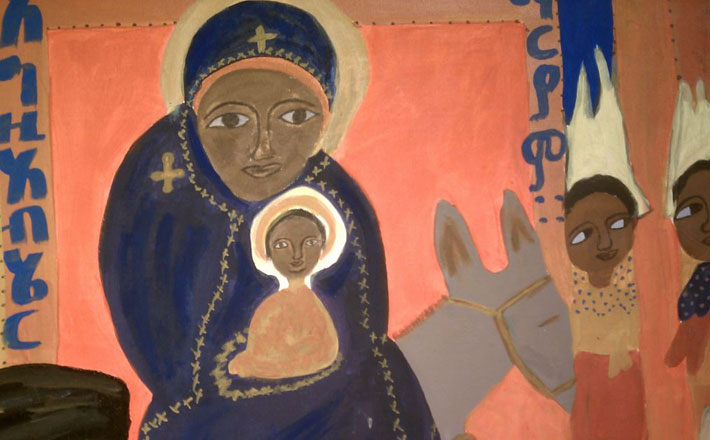Commentary on Titus 2:11-14
The opening of this portion of Paul’s brief letter to his assistant Titus might be described as the Christmas message in one sentence, or perhaps the Christmas Tweet, “the Grace of God has appeared, bringing salvation to all” (Titus 2:11).
We gather together on this evening to celebrate God’s love, God’s gift, and God’s grace in the coming of Jesus. It was Jesus, as Paul reminds Titus, who “gave himself for us that he might redeem us” (Titus 2:14). These four verses are not only the Christmas message; they are the entire message of the Gospel. The birth, death, and resurrection of Jesus are summed up in one word: grace.
Paul is writing to his faithful companion, Titus, reminding him that there is still work to do on the island of Crete. Paul left Titus behind in order to continue his journey, “I left you behind … you should put in order what remained to be done” (Titus 1:5).
I can only imagine that this letter was and still is not too popular with Christians on the island of Crete. After all, Paul seems to agree with a local “prophet” who believes that Cretans “are always liars, vicious, brutes, lazy gluttons” (Titus 1:12). That is not necessarily an approach that will endear him to his readers. Paul does not save his insulting remarks only for the residents of Crete. Later in the letter he writes that Titus is to tell women to be “submissive to their husbands” (Titus 2:5) and slaves “to be submissive to their masters” (Titus 2:9). I think we now know why the letter to Titus does not necessarily make it in the “top 10” list of favored scripture passages.
After charging Titus with appointing elders and bishops for the churches in Crete, Paul describes, at length, the qualities and characteristics those leaders must possess. Paul then describes the lives that all Christians must live and what they are to do. Paul addresses everyone: older men, older women, young women, younger men, and slaves. Paul reminds Titus that he is to “Declare theses things; exhort and reprove with all authority. Let no one look down on you” (Titus 2:15). All that Titus says and does is under the full authority of Paul.
In the midst of these detailed instructions and descriptions of the faithful Christian life we find Paul’s wonderful reminder of what God has done for us, this evening’s appointed text. Paul wants Titus, in fact, wants us to remember why we should live this kind of life. The grace of God, namely, Jesus Christ, has appeared. And we must also note to whom Jesus has appeared. It was not just to a chosen view. No, Jesus appeared to and brought salvation to all; as the heavenly messenger declared, “I am bringing you good news of great joy for all the people” (Luke 2:10).
Paul declares not only the good news of the incarnation, he also proclaims the message of the cross, Jesus “gave himself for us that he might redeem us” (Titus 2:14). And finally, he reminds us that the story is not over. We are not only looking back to what God did in Bethlehem and Golgotha, “we wait for the blessed hope and the manifestation of the glory” (Titus 2:13). We are awaiting the second coming that has been a recurring theme throughout the Advent readings.
Central to this reading is the proclamation that those of us who rejoice in God’s gift already received, and who await the return “of our great God and Savior, Jesus Christ” (Titus 2:13), are to live lives that reflect that gift. Paul is very clear what we are to do and not to do. We are to live moderate sensible lives. We are to live just and upright lives. We are to live godly lives as we wait for the day of glory.
While the focus of everyone on this “silent night” will be the birth of our savior, I wonder if the opening of this letter and Paul’s challenge to Titus might not be a beautiful reminder to us all? Paul left Titus behind to complete his work; did Jesus leave us behind to complete his work? Is our call this Christmas Eve, “to put in order what remained to be done” (Titus 1:5)? Jesus came to bring justice and peace; we are here to continue his mission bringing to all, friends and strangers alike, the loving grace of God.


December 24, 2014